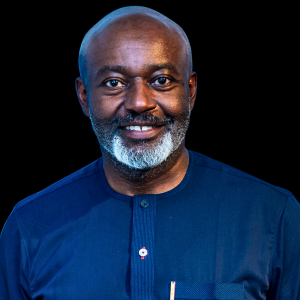Your Excellencies, Captains of Industry, Thought Leaders, Opinion makers and shapers, SDG Action Rangers, Distinguished Ladies and Gentlemen, Colleagues, and Friends It is indeed a pleasure to be here as Resident Coordinator of the UN system in South Africa.
I welcome you all and also commend the organizers – TEDX and WFP, as well as the inspiring speakers, and participants, for this exciting, important and timely “Food for Thought” event. Let’s cease this moment to share insights and innovative ideas on combating food insecurity in Southern Africa and beyond. Especially since in 2023 hunger levels globally are higher than ever before.
It is unconscionable that in a world of plenty many still go to bed hungry. Latest statistics show around 735 million people are currently facing hunger. This is an increase of over 122 million people since the 2019 public health pandemic and subsequent weather shocks and conflicts. In Africa, the challenge of food insecurity is served with a harsh reality where 1 in 5 people face hunger on our continent, a rate more than double the global average. This statistic includes millions of children under five who suffer from malnutrition.
As with any global issue, hunger is not gender blind. Approximately and disproportionately, 150 million more women and girls are hungry than men, indicating a rapidly widening gender gap. Earlier this year the United Nations Secretary-General convened world leaders and key actors for the UN Food Systems Summit +2. A Stocktaking Moment to push towards transforming food systems and accelerating action for the interlinked SDGs.
The UN Secretary-General António Guterres said, “Broken food systems are not inevitable. They are the result of choices we have made. There is more than enough food in the world to go around. More than enough money to fund efficient and sustainable food systems to feed the world, while supporting decent work for those who grow the food we eat.”
Friends, The interconnectedness of the 17 SDGs means that we cannot achieve one without realizing the others. For example, children who suffer from hunger cannot study effectively and are often forced to abandon school to work. Poverty heightens vulnerability, including a greater risk of gender-based violence, leading to exploitation in exchange for cash or food.
Therefore, addressing world hunger is not just about feeding the hungry, but also about fostering peace, prosperity, and social justice. With 7 years left to attain the goal of zero hunger, we have no choice to make such moments a turning point in our collective journey toward an inclusive, equitable, healthy, sustainable, and resilient future, leaving no one behind.
Much like a well-prepared meal, our efforts to combat food insecurity should be multi-faceted. We must blend together policy, knowledge, finance, innovation, climate action, education, decent work elements to create a comprehensive and sustainable solution while also recognising there is no one-size-fits-all approach to addressing food insecurity.
Friends,
South Africa has its own challenges regarding the country's food system, with about 20% of households facing food insecurity, according to the South Africa Census 2022. The government of South Africa is committed to addressing these challenges and the UN through its Rome-based agencies – WFP, FAO and IFAD, are acting in a coordinated fashion to support the government in enhancing food security, sustainable agriculture and rural transformation.
Some of the ongoing and planned interventions include seeking to improve the livelihoods of smallholder and rural farmers through resilient value chain capacity strengthening, extending nutrition programmes, providing livelihood training to vulnerable women and youth to develop their entrepreneurship capacity.
The food for thought we share today can be the recipe for a hunger-free Southern Africa tomorrow. For this to happen, we must act now and ensure that our thoughts do not just remain as an appetiser but become the main course.
Thank you all.





